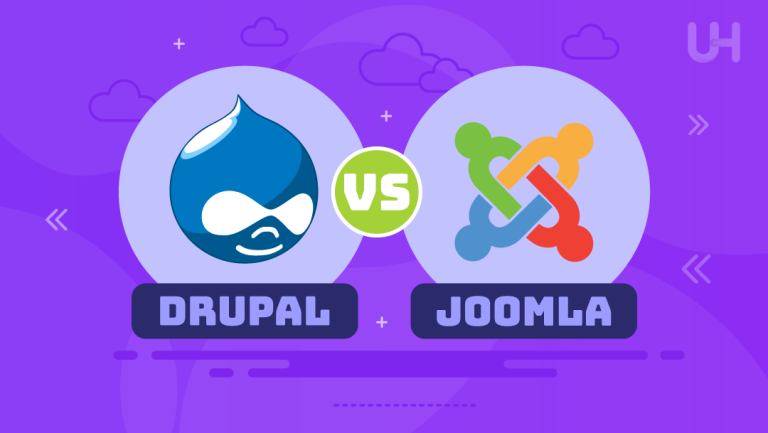Search engine optimization (SEO) is a cornerstone of business success in the digitized world. With its help, you can get right in front of your audience and grow your traffic and, respectively, revenues.
A Content Management System (CMS) is software that enables you to create, manage, and scale your site from a single place. In a nutshell, it’s the backbone of your website, and, respectively, it can help you deliver and manage content that contributes to your SEO.
Hosting, in turn, is a service that enables you to publish your site on the web, meaning that it also plays a pivotal role in your online presence.
All in all, by picking the best content management system and hosting, you can empower your SEO and appear higher in search results. Let’s see how you can match these two components with your search engine optimization efforts to achieve the best outcomes.
SEO CMS: Key Features Making an SEO-Friendly Platform
If you want to get the most out of optimization, first, you must use a trusted website SEO audit tool like the one offered at NinjaReports to see where you currently are in search engines. Based on the findings, you need to develop a consistent strategy for optimizing your site and its content to rank high. Leveraging the right Content Management System can help a lot.
SEO-friendly Content Management Systems are platforms that offer broad opportunities to build a site that ranks and consistently improves its performance in search engines. The key features to look out for in such platforms are:
- Responsive themes with an automatic layout adjustment to different screen sizes;
- A clean code structure that mitigates tech errors makes your site load and performs well;
- Configurable URLs that allow you to create simple and memorable URLs and integrate keywords into them;
- Integrated on-page SEO tools for seamless optimization and results tracking;
- Content optimization options for integrating keywords effectively and analyzing the performance of your content;
- Built-in tools for optimizing images and videos.
These are some of the paramount features that make a particular CMS SEO friendly. In general, the more flexibility and optimization options there are, the better.
Best CMS for SEO: Top Popular Picks
Before you start searching for the right solutions, let us tell you about the most popular Content Management Systems known for their SEO-friendliness:
- WordPress — This platform is the most popular choice among SEOs. It boasts incredible intuitiveness, an extensive library of plugins, high customizability, and a very strong community that can help you make the most out of this tool;
- Joomla — This option is great for complex sites and advanced customization. It features advanced SEO functionalities, intricate content organization, and flexibility. However, it can be somewhat harder to adopt for beginners;
- Drupal — The last trending choice is a reliable CMS known for a wealth of customization options, scalability, strong security, and a powerful open-source community. However, it might demand more server resources compared to previous options and be somewhat costly. For businesses looking to maximize their Drupal site’s potential, partnering with a specialized Drupal web agency offering tailored solutions and expert guidance.
Factors to Consider When Choosing the Best Platform for SEO
When selecting the right SEO CMS for you, keep in mind the following considerations:
- Ease of use — A perfect platform must have a small learning curve and let you adopt it quickly and easily;
- Customizability — For the best outcomes, your CMS should allow you to customize your design, layout, URLs, and other elements of the site with ease;
- SEO functionality — A CMS should enable you to leverage the key search engine optimization functionalities to streamline the optimization process;
- Plugin compatibility — A good platform must be compatible with any third-party plugins you might want to use.
Matching Hosting Services With Your CMS
Once you have a CMS platform you can rely on, it’s crucial to match it with the right web hosting service that will complement it.
The choice of the right provider is pivotal as it directly affects the performance and speed of your website. Both these factors are crucial to search engines and, thus, influence your SEO. The more optimized the server configurations of your provider are, the better.
Also, a good provider influences your site’s scalability. If the server is flexible, it should let you upgrade your site’s power resources (e.g., RAM, CPU, and others) and withstand challenges like spikes in traffic and others that might affect your SEO.
Another thing worth considering is the compatibility of your CMS and hosting service. Some platforms have unique requirements, which makes them work best with particular solutions. That’s why it’s important to find a perfect match that complements your CMS.
Lastly, your provider stands for the reliability and security of your site, which also matters to search engines.
How Different Hosting Services Affect Your SEO and CMS Performance

There are four hosting environments that you must consider:
- Shared — The shared hosting environment implies multiple sites sharing the same server with all its resources. The shared nature makes it a cost-effective solution. However, it can also result in poor loading speed and uptime, as well as decreased performance of your CMS. As a result, it can boost your bounce rate and negatively affect your positions in SERPs;
- VPS — Virtual Private Server is a virtual environment that provides you with dedicated server resources. Hence, it offers more consistent performance and greater scalability. With VPS, you can gain more control over your server’s configurations and achieve optimal speed and performance for the best user experience and rankings;
- Dedicated — Dedicated hosting supplies you with a dedicated, physical server that belongs solely to you. It also offers improved page speed and performance, which is great for SEO. It’s the best option for sites with high traffic or high-performance requirements;
- Cloud — This hosting leverages several interconnected servers at the same time to efficiently distribute the load on them and ensure scalability. This solution can result in enhanced reliability, performance, and loading speed, leading to excellent user experience and high rankings.
Performance Metrics: Evaluating Hosting Services
Apart from the type of hosting, you need to assess it based on its performance before picking a suitable option.
Here’s an overview of the basic performance metrics to keep an eye on:
- Uptime – This metric stands for the accessibility of your website at different times (including traffic spikes). It affects the accessibility both for users and search engine bots that crawl your site. Hence, it can have a significant impact on your user experience and rankings.
- Server Response Time – This metric stands for the speed with which a server responds to user requests. It impacts the loading times of your pages, which is a direct SEO ranking factor.
- Scalability – This performance indicator stands for the scalability of the server’s resources. It’s crucial for maintaining the optimal performance of your site (and thus, user experience, page speed, and rankings) when your traffic grows.
- Security – Lastly, the security of your hosting directly affects the security of your site, which is also important to search engines and can either enhance or decrease your rankings. To assess the security of a particular provider, analyze the host’s reputation and customer feedback. Additionally, check out its terms, policies, and security measures.
Pro tip: To have an even broader understanding of the host’s reliability, keep an eye on other metrics, including page load speed, Content Delivery Network (CDN) integration, hardware infrastructure, server location, load balancing and redundancy, caching mechanisms, etc. Simply put, don’t blindly go with cheap web hosting services and meticulously analyze every option.
Best Practices for SEO-Friendly CMS-Hosting Integration
Once you have chosen both a good host and a Content Management System, follow these best practices to seamlessly integrate them:
- Empower your CMS with suitable SEO plugins to extend the functionality;
- Sync the chosen platform with third-party SEO tools you are already using;
- Configuring your CMS servers for maximum availability and performance — set up server-side caching mechanisms, redirects, response times, and other metrics for optimal content delivery;
- Test and optimize your site speed;
- Optimize site structure and create user-friendly navigation;
- Optimize your content, images, and multimedia for SEO;
- Monitor your key performance metrics and regularly adjust your strategy for the best outcomes.
The Bottom Line
Together, a combo of efficient CMS tools and hosting services can do wonders for your site’s performance and SEO. Both your hosting and Content Management System can define the responsiveness, scalability, speed, and reliability of your site. And it’s crucial to match them carefully to achieve the maximum outcomes.
After reading this guide, you should have a comprehensive knowledge of SEO-friendly CMS and different types of hosting services that can complement your rankings. Use this knowledge to optimize your site for the best performance and shine out the competition!
For a hosting solution that optimally supports your SEO efforts, consider the robust options provided by Ultahost’s SEO VPS. Ultahost’s specialized plans are designed to maximize your site’s speed, reliability, and search engine ranking potential.










